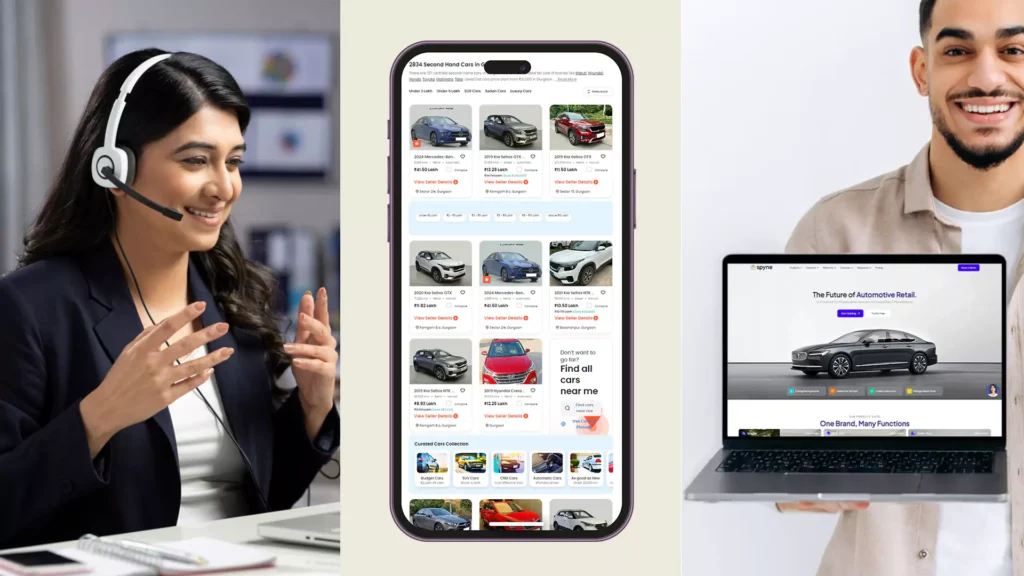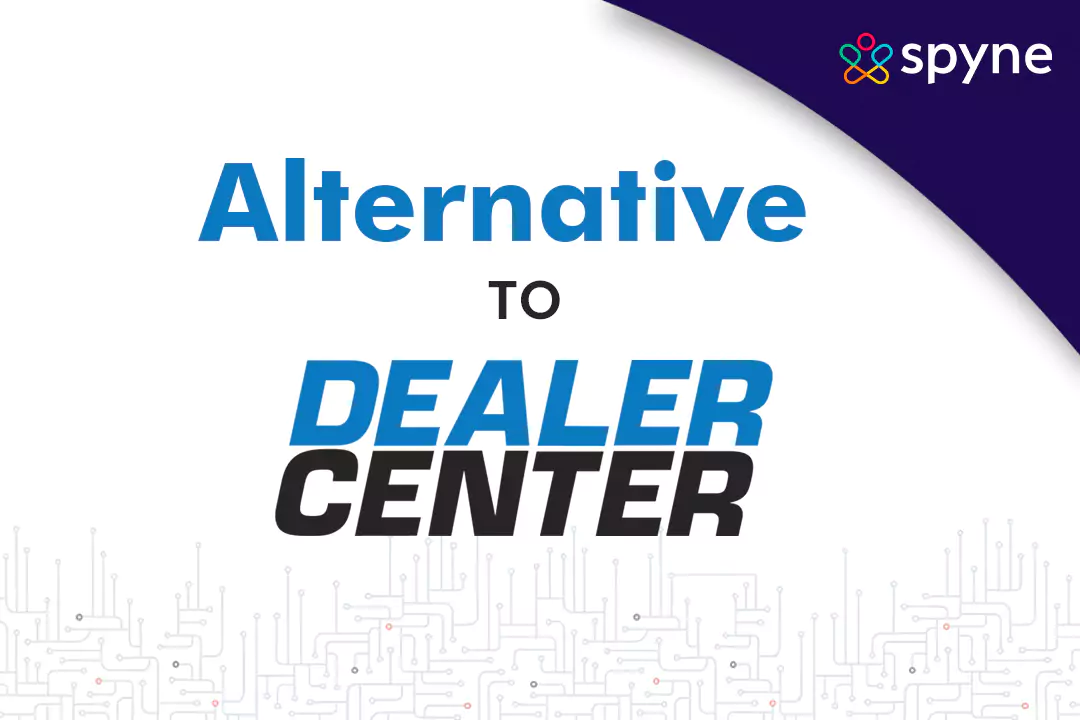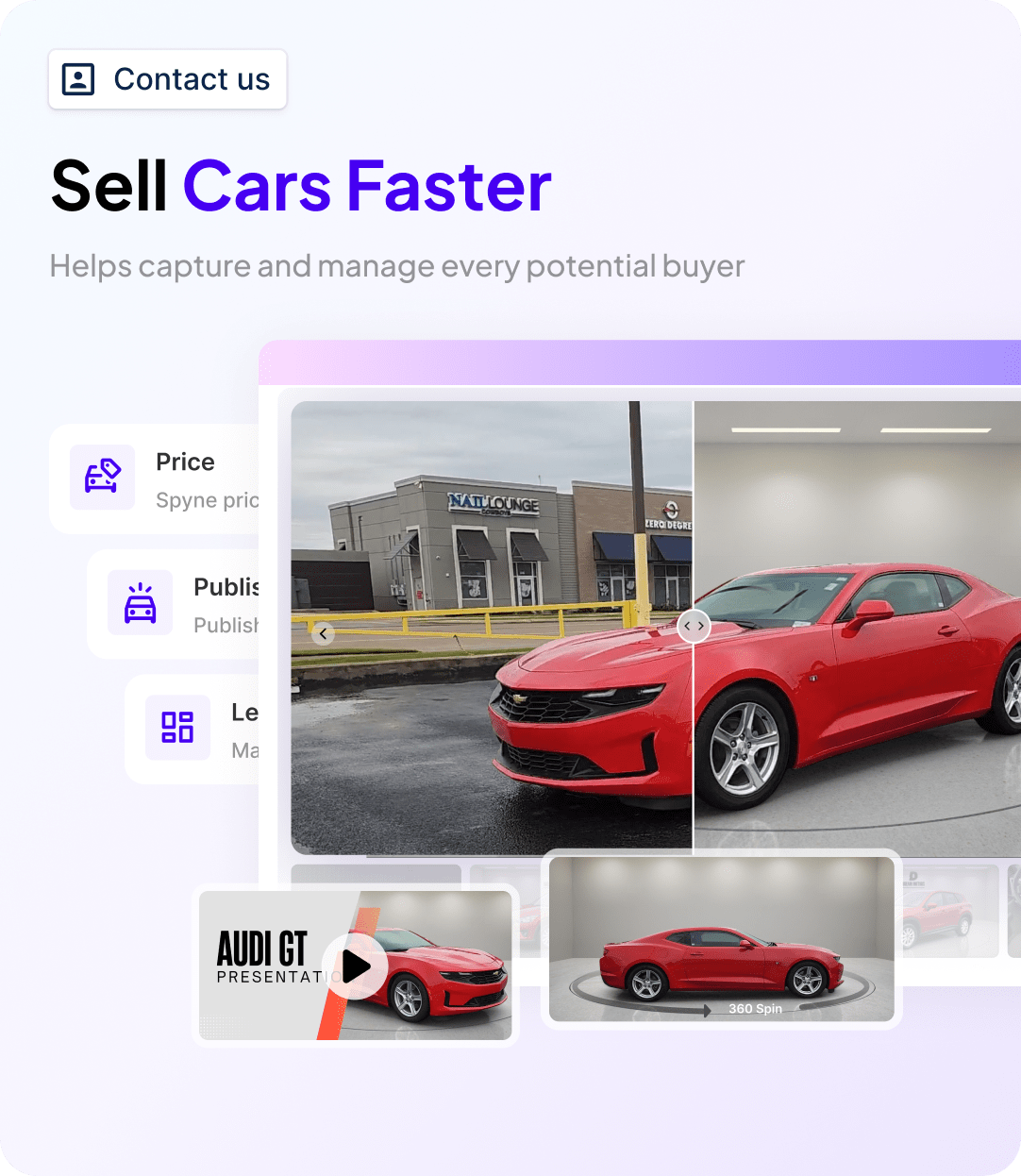In today’s ever-evolving world, everything depends on technology, and everyone wants their business to succeed and grow. Technology expands the company and enhances user experience and system functionality; hence, demand exists. DealerCenter is a significant company that provides DMS software for automobiles. Today, let’s discuss Dealer Centre and various alternatives to DealerCenter. Have you ever heard of it? If not, don’t worry. We have got you covered. Read on to learn about the top 12 alternatives to DealerCenter in 2024.
What is DealerCenter?
DealerCentre is an industry-leading dealer management system (DMS) software for automotive dealerships and independent auto dealers for payment processing, inventory management needs, and the integration of accounting with QuickBooks. DealerCentre is widely used for its various tools, which include an engaging dashboard with insights one needs for one’s business to grow. The impact is to the extent that it is interchangeably used with the dealer management system and consists of the majority market share, valued at $4.4 billion in 2022.
Why Explore DealerCenter Alternatives?
DealerCenter is known for its comprehensive features and industry standards. Their advancements in technology and evolving dealer demand create an opportunity for you to look for alternative solutions. Automotive dealers are in search of robust systems like DealerCenter. They introduce the latest tools and functionalities in the market through their systems while also enhancing user experience. This ensures that they not only remain competitive and efficient and sustain growth in this rapidly evolving market, but the other companies capitalize on the opportunity. Now, we see a lot of variety if we look for alternatives to DealerCenter.
Furthermore, as technology advances, dealers look for more features and tools that not only automate the process but limit their intervention and produce effective results. As a result, dealerships look for more impactful software that caters to their needs and equips them with all the latest technology and features. DealerCenter is being considered pretty hostile towards these and needs to keep up with industry demands. Hence, there has been a spike in the number of dealers looking for alternatives to DealerCenter.
Top 12 DealerCenter Alternatives and Competitors in 2024
Although legacy software is in the DMS category, there has been stiff competition recently. Several alternatives to DealerCenter in the USA have explicitly emerged in the category of car dealership software, which has not only adapted to the industry but is presenting itself as a prime choice for dealerships.
| Alternatives to DealerCenter | Features | Comparison with DealerCenter |
| Spyne | Spyne is the best service provider for automotive dealerships available in the market. It is intuitive, designed for the client’s first approach, and changes clients’ feedback. | Spyne focuses more on visual content, an immersive user experience, and excellent support. It provides AI-driven 3D visualization and virtual staging. |
| Dealertrack DMS | Provides DMS with features such as credit reports, financing tools, and digital contracting. | It offers better integration with financial services. |
| Frazer Auto Dealer Software | Frazer specializes in used car dealerships, providing sales tracking, inventory management, and accounting features. | Frazer focuses on small to mid-sized used car dealerships, offering a more straightforward, affordable solution. |
| CDK | It offers a comprehensive suite of services for dealership management, including sales, inventory management, and CRM. | CDK Global is robust and provides better support for larger dealerships, offering more advanced analytics and integrations than DealerCenter. |
| VinSolutions | It integrates sales, marketing, and customer data, allowing personalized customer interactions. | It is a superior option for dealerships prioritizing CRM with more powerful CRM tools than DealerCenter. |
| AutoRaptor CRM | Focused on lead management, follow-ups, and sales automation for small to medium dealerships. | AutoRaptor offers more specialized lead management tools, making it more effective for dealerships that need to streamline their sales process. |
| Carsforsale.com | Inventory management, website integration, CRM, lead management, and vehicle history reports. | Although similar, it has a high initial price and a slightly low customer rating. |
| PERQ | Marketing automation, lead conversion, AI-driven customer interactions, and multi-channel engagement. | PERQ specializes in marketing automation and customer engagements and is similar to DealerCener but with a stronger focus on lead conversion. |
| RouteOne | Credit application processing, eContracting, compliance management, and dealer reporting. | It focuses more on finance management than Dealer Center, which deals with a broader range. |
| vAuto Provision | Vehicle inventory management, pricing, appraisal, and merchandising tools with real-time market data analysis. | Excels in inventory and pricing management with real-time market data, proving better than DealerCenter here. |
| Conquest | Data-driven marketing, customer acquisition, retention solutions, and multi-channel advertising campaigns. | It offers advanced marketing and customer acquisition tools, which enhance existing CRM and are especially useful for targeted campaigns. |
| Acumatica Cloud ERP | ERP solutions focused on manufacturing, distribution, and retail, including production scheduling and material planning. | It is tailor-made for manufacturing and distribution rather than dealerships, which is practical for complex business operations. |
Top Features to Consider When Transitioning from DealerCenter
Well, Dealer Center is such a widely used management system due to the features it has provided over the years. To replace it, some key features must be provided that cannot be compromised, and some new rollouts must be released periodically. Let’s look at some key features these alternatives to DealerCenter pose to us to take over the market for DealerCenter:
1. Inventory Management
The system should be robust and equipped with all the necessary tools for automotive inventory management, tracking, and current prices. The best way is if it provides real-time analysis with integration through marketplaces.
2. Customer Relationship Management (CRM)
Automotive CRM is one of the most essential features and cannot be compromised. For any business to succeed, it has to be customer-centric, so CRM tracks customer interaction, tracks leads, and eventually converts them to sales. If the other market software provides automated follow-ups and customer segmentation, that is a big USP for them.
3. Marketing Automation
To generate sales, every business should market itself. Some tools can offer lead generation and tell about customer retention while focusing on digital marketing; email campaigns are a big boost for their use.

4. User Interface
Well, any platform is eye-pleasing once it’s not easy to use with good UI/UX. One can provide the best features most simply, but if it’s dull, then it will fail to maximize its reach and impact.
5. Customer support
Excellent customer service and support resources. What matters is the enhanced automotive customer experience at the end so that there is a sense of credibility for the dealers.
6. Integration of AI and ML
You may have encountered chatbots on websites and apps. These chatbots efficiently express user queries and take them to further updates. Therefore, the inclusion of AI significantly impacts the customer experience. Similarly, adding ML for the dealers will work equally well. ML, with its predictive analysis models, would give them the exact insights and data they need to make decisions for their business.
7. Customization Options
Customization plays a massive role in lead generation, so look for a system that allows you to cater to your needs. This helps our dealerships to ensure that they remain validated in the market and adapt to changing customer needs.
Tips to Choose Best DealerCenter Alternatives
Selecting the right software involves several intricacies that dealers need to keep in mind. One should deeply analyze their needs, what specific features they should have in their system, etc. These points would be a comprehensive guide that tells them how to choose the best dealership system for their business.
1) Identify Your Needs
Identify the specific features and functionalities your dealership requires (e.g., inventory management, automotive CRM, sales tools) and consider any tools you want in your dealership store that might benefit you.
2) Research Available Options
Before deciding, performing a marker analysis and comparing all available options, including their services, prices, tools, and features, is better. You should also focus more on solutions that specifically relate to your needs.
3) Evaluate Key Features
Ensure the system provides practical tools for managing vehicle inventory and integrating with other marketplaces to ensure robust and easy inventory updation. Also, Look for robust CRM features and tools that streamline the sales process and generate more leads. Also, check for compatibility with other systems you use (e.g., accounting, marketing).
4) Read reviews and testimonials
The best source of information about a tool is someone’s experience. Gain insights from other dealerships’ experiences and how the tools were effective for them.
5) Evaluate Pricing and Contracts
It’s better to have an estimate and a set amount you want to spend on the DMS already. To get an idea, analyze the different price points and see if the services address all pain points within those plans. Read the terms and conditions of the contracts and each clause to avoid any hassle in the future.
6) Consider Implementation and Support
Consider the time it takes for the setup to become complex, how easy it is to use, or how much training it requires before one is completely equipped with the knowledge to use it.
Conclusion
Technology is a boon for everyone, but knowing how to leverage it is the key. DealerCenter struggles to adapt to the changing times. Maintaining the pace with the industry is required to strive and thrive in such a competitive world, which DealerCentre failed to do. It looks like there is a need to look for alternatives to DealerCenter. To choose the best option, research extensively, analyze other dealers’ reviews, and compare the features and pricing with the DealerCenter.
















